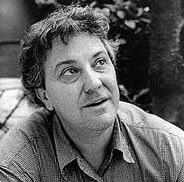Michel Khleifi was born in Nazareth in 1950. In 1970 he traveled to Belgium where he studied television and theatre directing. Considered the founder of modern Palestinian cinema, Khleifi produced and directed several full-length features and documentaries for international release and broadcast.
He is the winner of several prestigious international awards including the International Critics' Award, Cannes '87 and the Golden Shell, San Sebastian '87 for Wedding in Galilee, the first Palestinian film shot inside historical Palestine by a Palestinian director to gain international distribution. His previous documentary feature, Fertile Memory (1980), was also the first Palestinian film to be shown at the Cannes FF and was a groundbreaking work, both on a political and aesthetic level, treating the struggle for women's freedom and emancipation, across the generations and under occupation, in a haunting lyrical style that became all his own.
His next feature film, Canticle of the Stones, also selected in Cannes, was an ode to the victims of the first uprising or Intifadah, an ambitious cinematic work combining documentary with fictional sequences of a tragic love story in a highly poetical and deeply humane approach. This was followed by L'ordre du Jour, a feature-length adaptation of a Belgian novel of the same name drawing a critical portrait of contemporary bureaucracy and its alienating and absurd effects on the modern individual. In 1994, Khleifi returned to Palestine with a film in which he once again explored new aesthetic forms, basing a popular children's tale in the devastated Gaza Strip. This film, entitled Tale of the Three Jewels, was premiered once again in Cannes and won numerous international awards.
Apart from a documentary on mixed marriages between Arabs and Jews in Palestine/Israel in 1995/1996, Forbidden Marriages in the Holy Land, Khleifi did not make any films until Zindeeq (2009), once more a highly original and audacious treatment of contemporary Palestinian reality, this time that of a Nazareth torn between cynicism, sectarian and tribal violence and the haunting memories of 1948 while struggling to embrace modernity. The film won the Arab Muhr for Best Feature, the Dubai Film Festival's top award.
Khleifi continues to teach directing at the Institut National supérieur des arts du spectacle (INSAS) in Brussels, Belgium. He has also supervised pioneering film studies programmes both in Palestine, through the A.M. Qattan Foundation's Palestinian Audio-visual Project, and at the University of St Joseph in Beirut, Lebanon.











